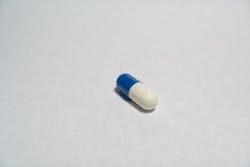New Low Cost Method Removes Widely-used Anxiety Drug from Wastewater
Researchers at the University of Johannesburg have developed a new method to effectively remove the anxiety drug Diazepam from recycled water and wastewater. The process utilizes titanium dioxide to remove eradicate the drug, a substance that usually bypasses usual methods wastewater treatment.
According to lead researcher Vinod Kumar Gupta, this new process offers a low cost alternative to methods that are usually expensive and difficult.
“Existing processes that can remove Diazepam and other drugs at large scale from wastewater are expensive, time consuming, inefficient or all three,” Gupta said. “Some also consume a lot of energy in multiple steps or use toxic and hazardous compounds unfriendly to the environment.”
Diazepam is used ubiquitously worldwide for anxiety disorders, so a quick and cost-effective method for municipal and industrial systems to remove such compounds from wastewater marks a positive step forward. The titanium dioxide nanofibers from the drug by acting as filters during the photocatalytic decomposition process.
According to Professor Gupta, the nanofibers are also affordable to produce. “The process to make the fibers is also simple and cost-effective,” Gupta said. “We are planning a pilot plant at the University of Johannesburg to manufacture these nanofibers. Every aspect of the pilot plant is planned to minimize nanofiber pollution to the environment.”
